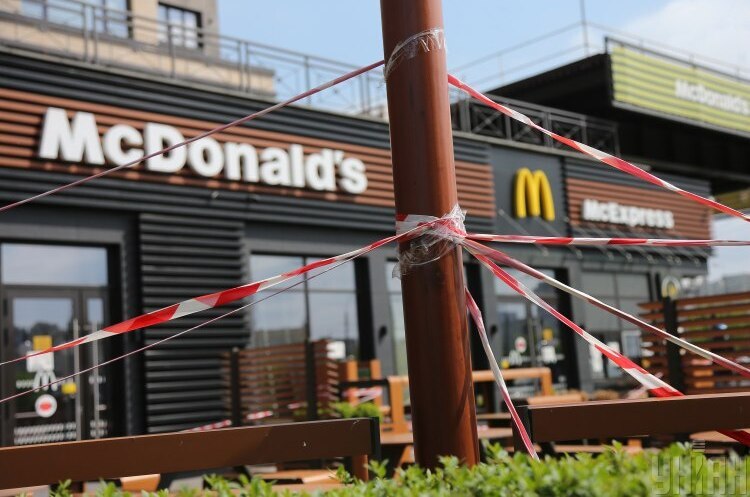Why the return of McDonald’s in Ukraine is more than just about fast food
And an anti-signal to the russian market abandoned by the company
Today, on 20 September, nearly seven months after russia's full-scale war against Ukraine has started, the multinational giant McDonald’s resumes its operations in Kyiv. As the company announced, three locations on the capital’s Left bank will work only for delivery at first, and dining rooms, express-windows, and McDrive are going to open in October.
In around a week, seven more locations will resume their operation in Kyiv, then – the rest of restaurants in the capital and other cities in the west of the country will open in stages. Special accent is made that locations will close when air raid alarm sounds, while work activities will cease.
And even in spite of such complicated conditions, restarting the network’s operation in Ukraine is a landmark, and not just for the fast food segment.
What was the reason for shutting down? McDonald’s came to the Ukrainian market in 1996. The first restaurant was opened on 24 May 1997 in Lukyanivka neighbourhood. On 24 February 2022, as the first russian missiles were launched, McDonald’s locations in Ukraine ceased to work. Sometimes the company was blamed for this, given that its closest competitor, the KFC, has virtually never stopped.
So did all Ukrainian businesses of the Inditex Group – the owner of large shopping network (Zara, Massimo Dutti, Bershka, Oysho, Pull & Bear, Stradivarius), represented in Ukraine, as well, whose protocol forbades operation in war conflict zones. According to unofficial information, the possible resume to work of the Inditex in Ukraine was in question in July. But, based upon the result, such a possibility was rejected.
Why is it important that they open? The more valuable the resume of McDonald’s operation becomes. “The return of a big American company is primarily the signal for international business on the possibility of working in Ukraine, even in spite of war conditions,” said Dmytro Kuleba, the head of the Foreign Ministry of Ukraine.
McDonald’s meaning is far more than just sectoral. This the largest multinational corporation with $100 billion capitalisation is a litmus paper of the market and the informal economic indicator. Network’s restaurants’ presence in this or that country is considered (though, unofficially) when making investment ratings. The reason for such an approach is that the corporation operates according to unified, rigid rules of both running business and corporate culture and does not meet halfways..
What does it mean in the political context? Just as the presence of McDonald’s adds points to attractiveness of at least understandability of the local market, its absence or especially quitting a country amounts to a “red flag” for other investors.
The company was among the first to fully and categorically curtailed all activity in the occupied Crimea in 2014, giving a signal to the international community that this was a “grey zone” – so there could be no compromise for civilised business. After the full-scale invasion in Ukraine in February 2022, McDonald’s initiated phasing out from the russian market. Direct losses of the “receiving side” caused by this decision were enormous.
McDonald’s was, according to the National Research University Higher School of Economics, the largest public catering enterprise with about 7% market share. During the 30 years the company invested $2.5 billion in the russian economy. Its stake made about a quarter of all taxes paid by the whole public catering industry, it purchased 4.2% potatoes produced in the rf, and 1.8% domestic cheese, and 0.5% meat and poultry.
Besides, McDonald’s was among the biggest employers on the russian market, providing “over 100,000 jobs on supplying enterprises and 60,000 more in the network itself. More thn 6 billion people visited the network's locations over 30 years.
But these losses are nothing if compared with the scope of damage made to the russian market by the very fact of ceasing McDonald’s operations. This move automatically put the players working in russia in the non-handshakable category and was the final argument for investors who hesitated whether or not to leave the aggressor country’s market.
If you have read this article to the end, we hope that means it was useful for you.
We work to ensure that our journalistic and analytical work is of high quality, and we strive to perform it as competently as possible. This also requires financial independence. Support us for only UAH 196 per month.
Become a Mind subscriber for just USD 5 per month and support the development of independent business journalism!
You can unsubscribe at any time in your LIQPAY account or by sending us an email: [email protected]



